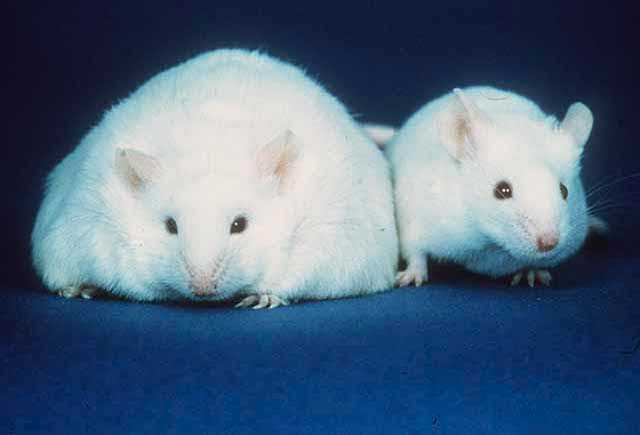Scientists have found that how the body regulates what type of bacteria live in the gut could affect the chances of developing inflammatory liver diseases, plus a host of other metabolic disorders including obesity and type II diabetes.
 The researchers from Yale University School of Medicine and the Washington University School of Medicine studied mice engineered to be deficient in a particular type of protein, known as inflammasomes, found in the cells lining the gut. After previous work, which they published in the journal Cell in 2011, the researchers knew that without these proteins, the cells of the gut wall are unable to regulate the types and numbers of bacteria that live there, and bits of bacteria can then start to leak through the gut wall into the blood.
The researchers from Yale University School of Medicine and the Washington University School of Medicine studied mice engineered to be deficient in a particular type of protein, known as inflammasomes, found in the cells lining the gut. After previous work, which they published in the journal Cell in 2011, the researchers knew that without these proteins, the cells of the gut wall are unable to regulate the types and numbers of bacteria that live there, and bits of bacteria can then start to leak through the gut wall into the blood.
The first port of call for the blood stream after the gut is the liver, which gets hit with all these bacterial products that activate sensing proteins. These tell the cells to produce a chemical called TNF (tumour necrosis factor) that causes the liver to become inflamed. The researchers looked at three measures of liver health - the level of fat in the liver, the level of inflammation of the liver and the number of dead hepatocytes, or liver cells, and all three of these measures were found to be worse in the mice with the altered gut bacteria.
And interestingly, the effects were found to be transmissible to healthy mice. When healthy wild type mice were housed with the inflammasome deficient mice and put on the same diet designed to induce liver stress, they developed the same level of liver problems as the genetically altered mice. And when fed a high fat diet, healthy wild type mice housed with the altered mice were far more likely to develop obesity than when housed with other wild type mice. This, the researchers argue, is all down to their exposure to the altered gut bacteria of the mutant mice, as mice eat faeces on a regular basis. Although the wild type mice had fully functioning inflammasomes, they were simply overwhelmed by the amount of altered bacteria entering the system. One of the authors of the study, Richard Flavell, was keen to point out that this doesn't mean that diet is no longer important - the path to the metabolic syndrome that can include obesity, diabetes and liver disease is a combination of the diet providing the susceptibility to these diseases, and the bacteria exacerbating the problems.
And when fed a high fat diet, healthy wild type mice housed with the altered mice were far more likely to develop obesity than when housed with other wild type mice. This, the researchers argue, is all down to their exposure to the altered gut bacteria of the mutant mice, as mice eat faeces on a regular basis. Although the wild type mice had fully functioning inflammasomes, they were simply overwhelmed by the amount of altered bacteria entering the system. One of the authors of the study, Richard Flavell, was keen to point out that this doesn't mean that diet is no longer important - the path to the metabolic syndrome that can include obesity, diabetes and liver disease is a combination of the diet providing the susceptibility to these diseases, and the bacteria exacerbating the problems.
Richard also suggests that although they don't know yet how applicable the study is to human cases of fatty liver disease and obesity, the study "has the implication that there could be transmissibility of metabolic syndrome and that we should seriously consider these environmental infectious possibilities".
He proposes that we may just not have noticed a transmissible effect before - if a whole family are obese, we would assume a genetic component was behind it, but that there could be these transmissible bacterial factors involved too, and the next step for the research is to investigate that.










Comments
Add a comment